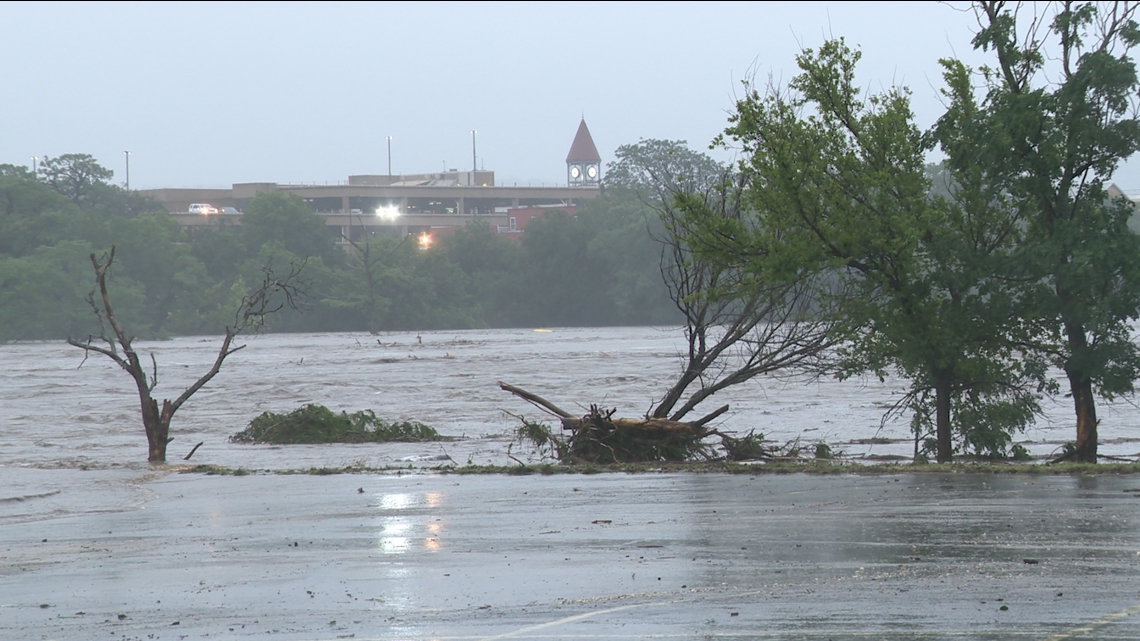
Texas lawmakers are holding a hearing in Kerr County on Thursday to question leaders about the devastating flooding that killed more than 100 there.
KERR COUNTY, Texas — Texas lawmakers held a joint committee hearing on July 23 to discuss the July Fourth flooding. While they had many questions, some could not be answered.
Local Kerr County and Kerrville officials were not in attendance that day. Chairman Charles Perry said at the time the committee didn’t want to interrupt local officials in their local obligations.
That said, Thursday will be different. The Special Committees on Disaster Preparedness and Flooding will be coming to Kerrville and local leaders are scheduled to be in attendance.
Lawmakers will now be able to get answers to three big questions that hang over this disaster.
Who was in charge of emergency management the morning before the flooding?
Kerr County Sheriff Larry Leitha has already said there would be a review of the events leading up to the flooding. Lawmakers haven’t seen that yet.
Texas counties normally have an emergency management coordinator who works to prepare for these exact situations and lawmakers want to know who was doing that job.
At the previous hearing on July 23, lawmakers did get a chance to talk to the general manager of the Upper Guadalupe River Authority, Tara Bushnoe. While Bushnoe said she works with emergency management in some cases, she would not tell lawmakers who was in charge.
“I’m going to ask very pointedly and direct,” Representative Ann Johnson told Bushnoe. “Who was behind the wheel in the middle of the night in Kerr County that should have been the person that was up being prepared to sound the alarm?”
“I cannot answer that,” Tara Bushnoe said.
“Who can?” Johnson asked.
“Our emergency response entities,” Bushnoe said.
“If there’s an event in Kerr County today, you have a county and a city emergency management.” Chairman Charles Perry replied. “Is that one guy in one room and another guy in a different room down the hall and they’re just sitting around thinking, ‘Let’s look at warnings,’ or do they have a really active engaged team?”
“I’m going to defer to our emergency managers and county.” Bushnoe said.
Perry was concerned there was no clear answer.
“What I’m hearing at I’m hearing is it’s one or two individuals that have a title and really don’t know what to do with it from there on. Maybe I’m wrong and we’ll find out when we go to 31,” Perry said.
Who was in charge of Kerr County’s CodeRed system?
At 4:22 a.m., as the torrential rain continued to come down, a firefighter in Kerr County asked dispatch to send out a CodeRed Alert. The county is not able to to do so at that time.
“Is there any way we could send a CodeRed out to our Hunt residents asking them to find higher ground or stay home?” The firefighter asked.
“We have to get that approved with our supervisor,” the dispatcher responds.
A CodeRed message was not sent to warn the Hunt area until 6:02 a.m. The river had already crested there more than 50 minutes prior.
There was no one available to explain this on July 23.
“This is just another example of why we need to get this professionalized,” Sen. Jose Menendez said.
Why was there no evacuation declared?
While radio traffic and text messages obtained through a records request show some first responders and city employees trying to evacuate areas on July Fourth, there was no official evacuation from a city or the county.
Texas Department of Emergency Management Nim Kidd confirmed that to lawmakers on July 23.
“When was the evacuation ordered?” Sen. Charles Schwertner asked.
“I do not believe there was ever one ordered sir,” Kidd replied. “Again, (that’s a) question for the locals.”
Kidd said he believed only a mayor or county judge could issue that order.
Schwertner said a “decision maker” needed to be in place.
“I’m not for sure how they do it at the county level. I’m sure we’ll hear more next week,” Schwertner said July 23. “But that has to start at the county judge’s level, from my understanding, from what I’m being educated on today.”
“We can have sirens up and down, but if someone doesn’t turn them on they’re no good, right?” he continued. “That communication to the person making the call… in this time of emergency, needs to happen.”
